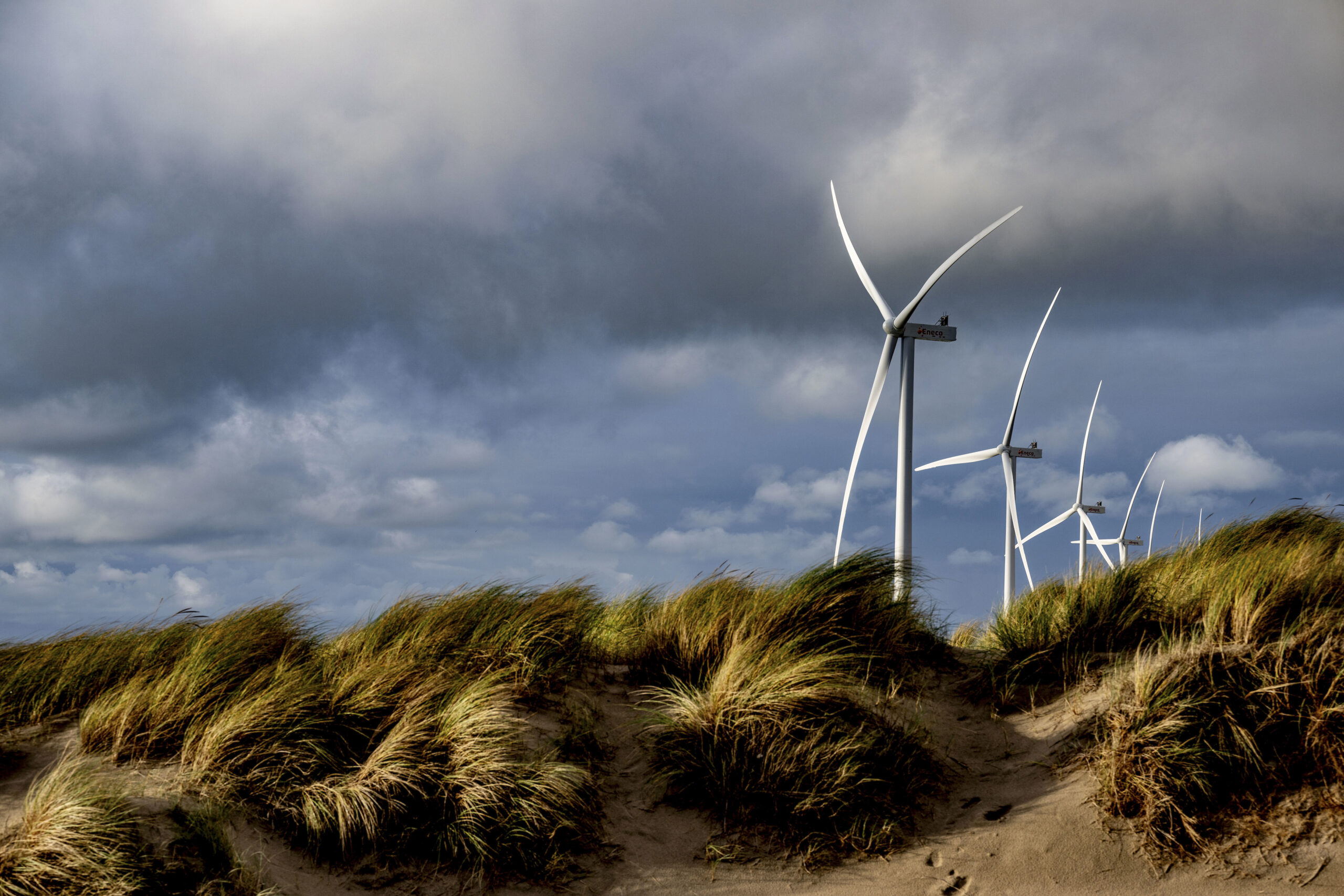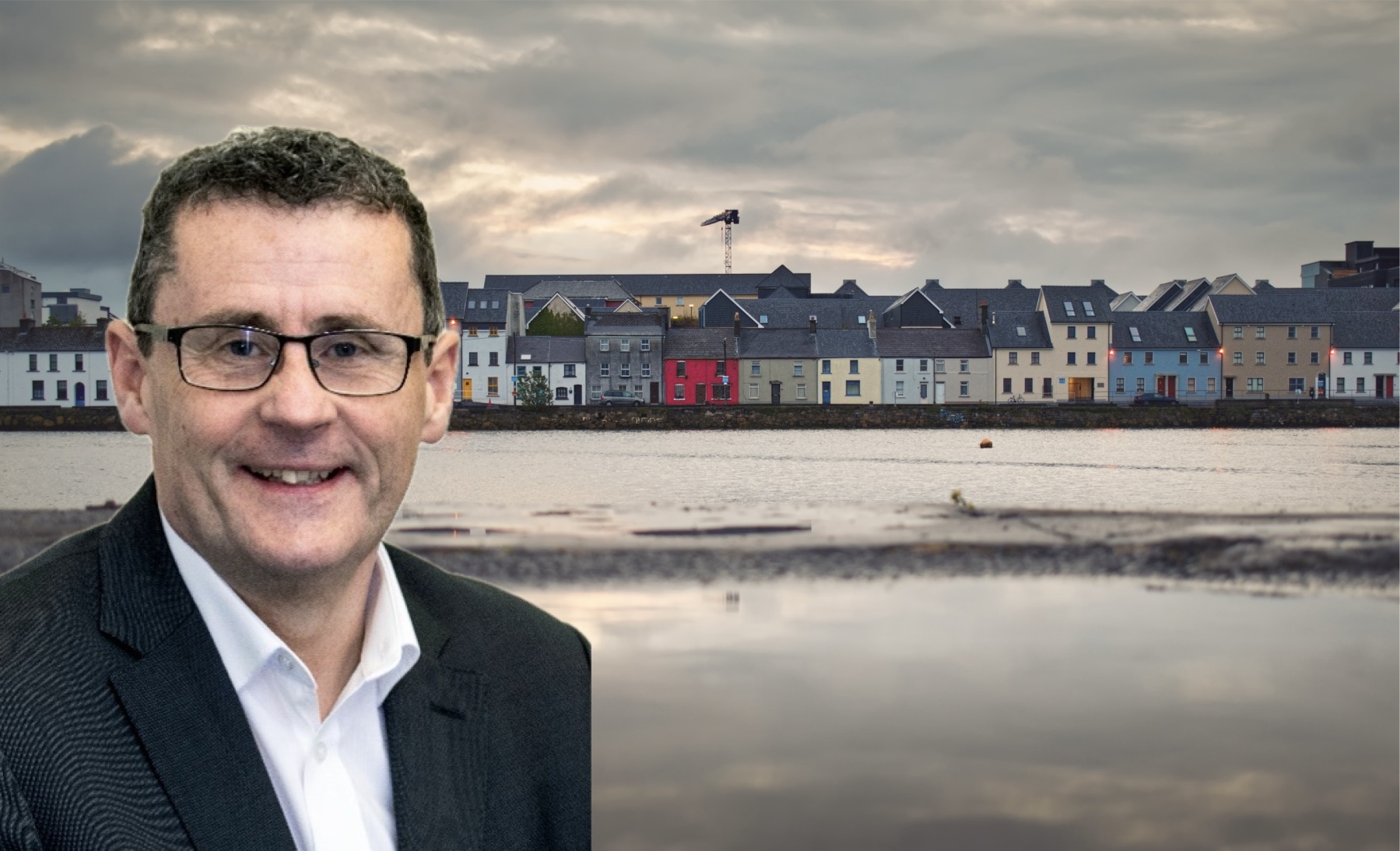The regions are ripe with potential across Ireland. Justin Molloy, the CIF’s Director for the Western, Midland & Northern Regions, says investing in infrastructure is the key to unleashing economic development. He believes strategic investments in critical infrastructure such as regional roads, rail, air and sea ports, as well as renewable energy generation on the west coast would place Ireland at the centre of European prosperity. He shares his insight with Construction magazine
Infrastructure is key, both to the country’s future success and also in diagnosing its current shortfalls. From water and wastewater systems to roads and railways, the infrastructure shortcomings are glaring.
Take Galway, for instance, the proposed outer ring road has been decades delayed and is still awaiting a decision from An Bord Pleanála.
Until a resolution is reached regarding this pivotal infrastructure project, progress in the city and county continues under duress.
Meanwhile, investment in the north south rail and road network remains a pressing need, not only in the Midlands but throughout the country.
And when we shift our focus to the northwest region, particularly around Mayo, the potential for transformative infrastructure projects becomes evident.
The Western Rail Corridor presents a compelling opportunity for economic growth, while the development of lands around Knock Airport holds promise for revitalising the region.
By ensuring that these areas are adequately serviced and primed for commercial development, akin to the success seen in the Shannon Commercial Zone, there is opportunity to stimulate growth and prosperity across the entire region.
Essential components like water, wastewater systems, electricity, telecommunications, roads and railways are fundamental for any meaningful advancement.
Without these foundational elements in place, the construction of schools, houses, and other essential amenities becomes virtually impossible.
To truly unlock the potential of our regions and serve as an economic counterbalance to Dublin, substantial investment in infrastructure must be a priority.
This investment would not only alleviate the strain on larger cities but also create opportunities for people to live and work in regional areas.
By fostering the development of towns and villages, we can combat depopulation and encourage individuals to return to these vibrant communities.
Addressing these infrastructural deficits is paramount if we are to realise the objectives outlined in the National Planning Framework and pave the way for sustainable economic growth and prosperity across the nation.
Certainty is crucial
Planning for projects shouldn’t be about tomorrow, it’s about envisioning what we’ll need in 30 years. The current system is too slow, we need a consistent pipeline of work to forecast what’s achievable in the next decade.
What’s needed is a structured approach, akin to infrastructure commissions in some Commonwealth countries. These commissions, staffed by industry experts, would oversee projects from inception to completion.
They can prioritise projects for the State’s benefit, handle design, planning, procurement and project management.
This continuity ensures expertise persists regardless of changes in government. While decisions on project progression rest with the Government, this dedicated group would manage infrastructure delivery fulltime.
The construction industry’s turnover surpasses that of agriculture, forestry and fishing combined, underscoring its significant economic impact.
Given the pivotal role of the built environment in citizens’ well-being and the State’s economic development, it’s only fitting to establish a dedicated department for the built environment.
This department would handle critical aspects such as planning, design guidelines, public procurement, and building regulations, all crucial components of ensuring sustainable and efficient development.
Much like the Department of Agriculture, which boasts a team of experts managing agricultural affairs, the construction sector deserves a similar level of focus and expertise.
Establishing a department specifically tailored to the needs of the construction industry would effectively manage and optimise the built environment, driving progress and prosperity for all.
The need for a dedicated Minister for the Built Environment would be a key driver of future development.
Such a minister would oversee various crucial aspects, including infrastructure, housing, both public and private, building regulations, planning impact assessments and public procurement management.
With their comprehensive purview, they would lead strategic planning efforts, ensuring infrastructure is developed with a forward-looking perspective, anticipating needs not just for the present but also for the next three decades and beyond.
This proactive approach is essential to prevent recurring crises, such as the current housing shortage.
Moreover, a dedicated minister would address challenges like premature land zoning, where development is hindered due to inadequate infrastructure services.
This situation effectively freezes land assets, hindering economic growth and development. As an island nation, enhancing our connectivity with European ports independent of reliance on the UK is essential.
This requires robust development of our ports, ensuring they are equipped to handle increased traffic and facilitate seamless connections with European counterparts.

Embracing opportunities in renewable energy could bring prosperity on the global stage
Plans to construct wind farms off the west coast offer an exciting opportunity to harness renewable energy and position Ireland as a leader in this field.
With the potential to become the ‘Saudi Arabia of Europe’ in renewable energies, offshore wind farms could revolutionise our energy landscape.
Crucially, this necessitates the development of proper port facilities capable of servicing these wind farms efficiently.
Moreover, initiatives like broadband networks from Iceland to Ireland, onwards to Balboa in Spain and beyond, underscore the importance of connectivity in realising our aspirations for economic and environmental sustainability.
By investing in our transportation infrastructure and embracing opportunities in renewable energy, Ireland can chart a course towards greater independence and prosperity on the global stage.
Time is of the essence, our ability to swiftly respond to opportunities and challenges is vital for progress.
However, our current bureaucratic processes often hinder our agility, leading to unnecessary delays. We must shed the tendency for prolonged deliberation and streamline processes to enable rapid action when needed.
By embracing a more proactive and agile approach, we can expedite development, seize opportunities, and propel Ireland towards a brighter future.
Across the island there is huge activity taking place in our regional networks, the industry is delivering across the country on projects that will improve the lives of everyone.
Greater investment in critical strategic infrastructure across the regions is the key to a more prosperous sustainable future.








